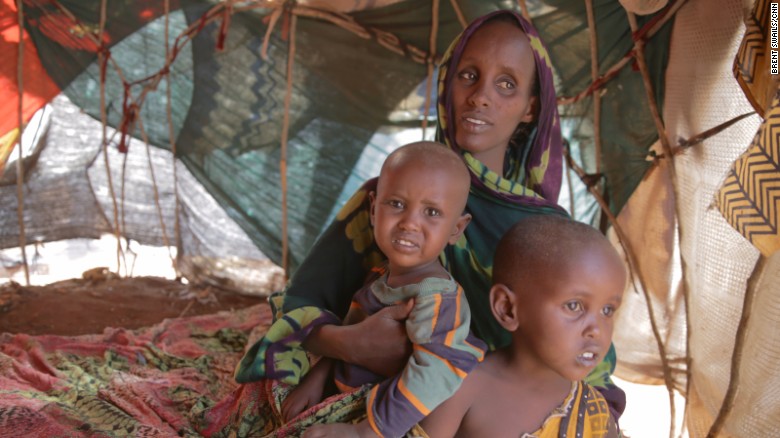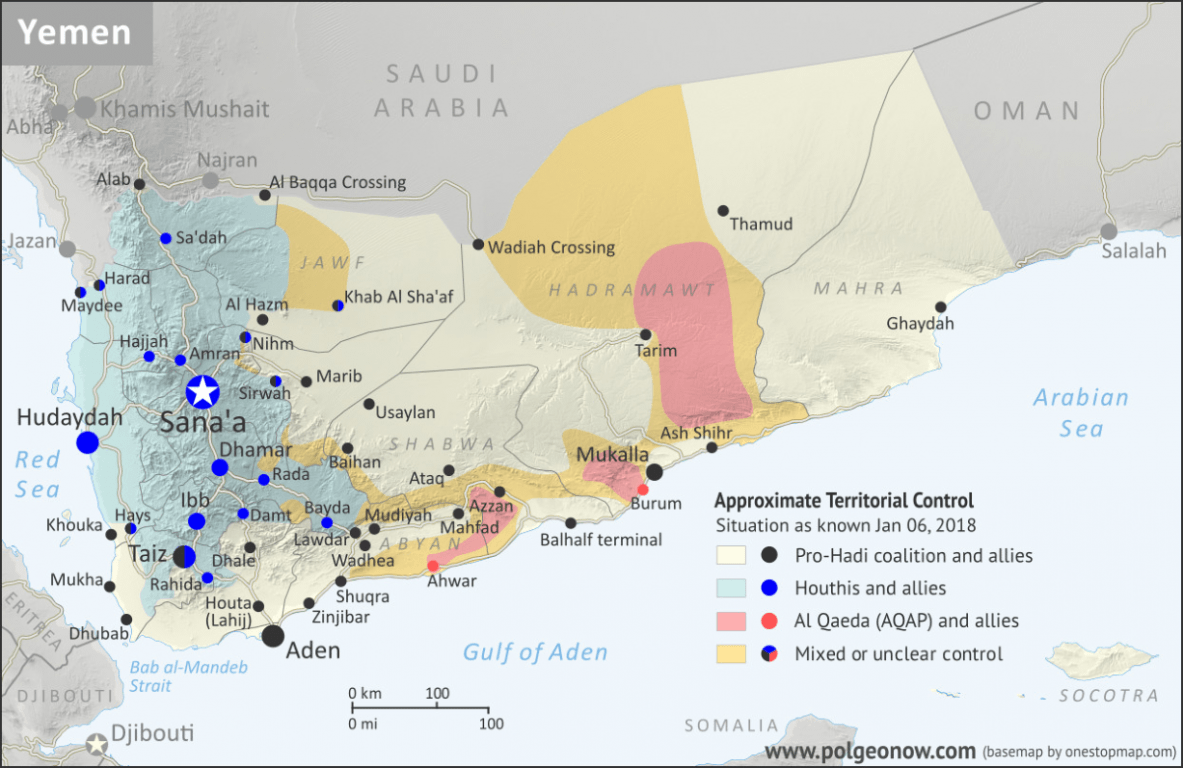Famine in Yemen
September 19, 2018 | Expert Insights

The ongoing conflict in Yemen, which began in 2014, has caused widespread famine as rising food prices and a falling currency has put more than 5 million children at risk.
Background
Yemen has been caught between Houthi rebels and President Abed Rabbo Mansour Hadi’s regime since 2014. As the Houthi rebels gained control of the western regions of Yemen in 2015 and began to advance towards the city, President Hadi was forced to leave his palace in Aden and flee the country.
Saudi Arabia, the UAE and other Arab states, fearing Iranian influence in the rebellion, led an intervention to support the President’s troops. However, the conflict has continued with almost 10,000 killed and 55,000 injured since.
With support from the international community to end military action, peace talks were held in Kuwait in 2016 but they failed to reach a resolution. The United Nations-sponsored another session between the Houthi rebels and the Saudi-led coalition in Switzerland earlier this month. The aim of the peace talk was to reach a peace agreement under a transitional government, but once again failed to do so.

Analysis
Due to the conflict, food and fuel prices have rocketed, salaries for public servants and teachers have been delayed and the value of the Yemeni Riyal has deteriorated significantly. Consequently, the number of families at risk of food insecurity has risen. In addition to famine, children in Yemen are facing an outbreak of cholera, an easily preventable disease. In 2017, a million people were affected by an epidemic of cholera. The UN has indicated that Yemen is on the verge of another outbreak of cholera.
Save the Children – a British-based NGO – reported that the rising prices have put an additional 1 million children at risk of famine, putting the total number at risk over 5 million. It stated that it has treated almost 400,000 children under the age of 5 for severe malnutrition in 2018. It has also raised the possibility that the war could cause the death of an entire generation of Yemeni children.
While agencies, like WFP and UNICEF, have been sending food and relief materials to the conflict zones, malnutrition remains on the rise due to insufficient supply. In addition, priority is given to those displaced from their local communities, making it harder for local residents to receive adequate resources. The Saudi-led troops and the Houthi rebels have also added difficulties to the supply paths as the key ports are threatened by fighting, further preventing the food and resources from reaching those who desperately need them.
The war and bombing have also caused the destruction of Yemen’s infrastructure, leaving the people without adequate access to health care and drinking water. Nearly half the hospitals in Yemen are not functioning. Doctors with limited funds and resources sometimes need to travel up to 5 hours to reach the nearest hospital.
Until the conflict is resolved, 22 million people – three-quarters of the population – in Yemen will need extensive humanitarian assistance. While the peace negotiations seem to be in a deadlock, the international community is taking a more active role in supporting the end of the Yemen conflict. Germany, Norway and others are increasing the pressure for resolution, by halting the sales of weapons and granting of defence contracts to the parties involved.
As war expenditure continues for Saudi Arabia and its allies, its rulers will have to justify the costly decision of staying in the war as well as ensure that the final outcome is favourable. The pressure from the international community further burdens the Saudi-led coalition.
Assessment
Our assessment is that the decisions to stop the sale of weapons and defence contracts by the West are more likely to influence the warring parties than the calls for peace talks. We believe that right now, it is beneficial for both sides to remain at war, but this will change in the long-term. In the meantime, we feel that international agencies should ramp up their efforts to adequately provide Yemen with food and relief materials.








Comments